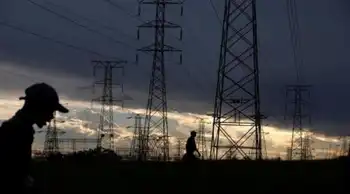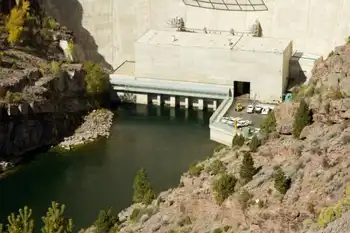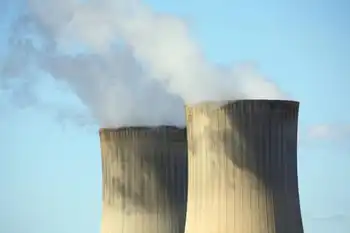Lesson of Enron: Electricity Deregulation Is A Disaster, Says Foundation for Taxpayer And Consumer Rights
What happened in California? - SANTA MONICA, CA, (U.S. Newswire via COMTEX) -- The fall of energy giant Enron should trigger the end of electricity deregulation in California and throughout the country, according to consumer advocates with the Foundation for Taxpayer and Consumer Rights (FTCR). Enron's demise demonstrates the unnecessary volatility that deregulation brought to the California energy system.
Five years after promising to create a marketplace for cheap and reliable power with 20 percent rate reductions assured by March of 2002, California's energy system is in a calamitous state. Under deregulation power companies manipulated power supply, drove up prices and, six times this year, forced rolling blackouts throughout California. Prior to deregulation, electricity was sold at a regulated price reflecting the cost of generating the power plus a reasonable profit for the power producer. Under deregulation, the market was supposed to take care of itself and, freed from government regulation, save consumers money.
"Enron's bankruptcy, after months of profiteering in California, shows that our energy system needs adult supervision," said Doug Heller, a consumer advocate with the Foundation for Taxpayer and Consumer Rights. "The power companies that promised consumer savings from deregulation acted like pigs at the trough and cannot be trusted to take care of energy service."
Enron's greed led to deregulation and greed killed Enron
Enron has been at the vanguard of transforming electricity systems around the nation into an unregulated marketplace that allows middlemen to buy and sell electricity like a commodity. The attempt to create a market for the trading of this essential service developed out of the greed of power companies and utilities and was stoked by a host of Wall Street institutions, such as analysts, investment firms and rating agencies who saw an opportunity to profit off deregulation, according to FTCR.
California, the first state to implement deregulation was financially devastated during the past 18 months as a small cartel of energy companies, led by Enron, was able to use this new layer between the production and distribution of electricity to make billions of dollars by overcharging for power.
"When we leave a service as vital to society as electricity in the hands of unregulated companies like Enron, we become the subject of those companies' greed," said Douglas Heller, consumer advocate with FTCR. "Enron spearheaded a deregulation system that added expenses but no consumer benefits. But they have been done in by their own greed. The lesson from Enron's demise is that electricity deregulation is a disaster and electricity systems need oversight."
What happened in California? Over the last year, California electricity rates have increased by as much as 40 percent, and the state is holding billions of dollars in energy debt that will eventually add even more cost to consumers. Also in 2001, California experienced six days of rolling blackouts, the state's first statewide power curtailments since World War Two.
Utilities in the state, which crafted the deregulation law, were allowed to overcharge consumers approximately $23 billion for electricity over the last five years as a result of the law. These companies, however, felt the sting of deregulation when companies like Enron began massively overcharging for electricity on the wholesale market for power. Pacific Gas & Electric, the state's largest utility filed for Chapter 11 bankruptcy protection in April 2001 and, in a move that consumer groups are challenging in federal court, the state Public Utilities Commission secretly agreed to a ratepayer funded $4.9 billion bailout of the second largest utility, Southern California Edison.
What must be done? According to FTCR, states around the nation and the federal government must halt plans to deregulate all aspects of the energy production, transmission and distribution systems. In those states where deregulation has already begun, there should be an immediate freeze and oversight should be re-instated. Consumer advocates are concerned that if deregulation moves forward, Enron's competitors - Dynegy, Sempra, Duke, Reliant and Williams among only a few others - will fill in the void left by the massive Enron. These companies were overshadowed publicly by Enron's cocky corporate demeanor, but they have been equally culpable in the price gouging that devastated California, according to FTCR.
In California, the state should immediately seek to obtain records from Enron to learn more about that companies' role was in this year's unexplained energy shortages and to determine the extent of Enron's overall involvement and influence in our energy system. Under deregulation the state lost the ability to fully identify who was buying and selling electricity, so it is not yet known how much of an impact Enron's bankruptcy may have. Also California ratepayers must be protected from paying the outstanding charges that Enron claims to have against the state and the utilities.
Additionally, the Governor should immediately renegotiate the power contracts that the state signed with other energy companies during while deregulation was wreaking havoc on the state. If power companies will not agree to reasonable prices for power, the Governor should seize the state's power plants to ensure that California businesses and consumers are not subject to more blackouts and price gouging.
"With the demise of Enron and the decimation of the California economy, politicians around the country must shore up or restore regulatory controls at all points in the energy system," said Heller. "When the result of an experiment is rolling blackouts, higher consumer rates, one utility bailout, one utility bankruptcy and the collapse of one of the nation's largest corporations, then the experiment has failed."
--- FTCR, a non-profit citizen organization, has led the fight against California's disastrous deregulation law and the energy "crisis" that deregulation created earlier this year.
Related News

Africa must quadruple power investment to supply electricity for all, IEA says
JOHANNESBURG - African countries will need to quadruple their rate of investment in their power sectors for the next two decades to bring reliable electricity to all Africans, an International Energy Agency (IEA) study published on Friday said.
If African countries continue on their policy trajectories, 530 million Africans will still lack electricity in 2030, the IEA report said. It said bringing reliable electricity to all Africans would require annual investment of around $120 billion.
“We’re talking about 2.5% of GDP that should go into the power sector,” Laura Cozzi, the IEA’s Chief Energy Modeller, told journalists ahead of the report’s launch.…




